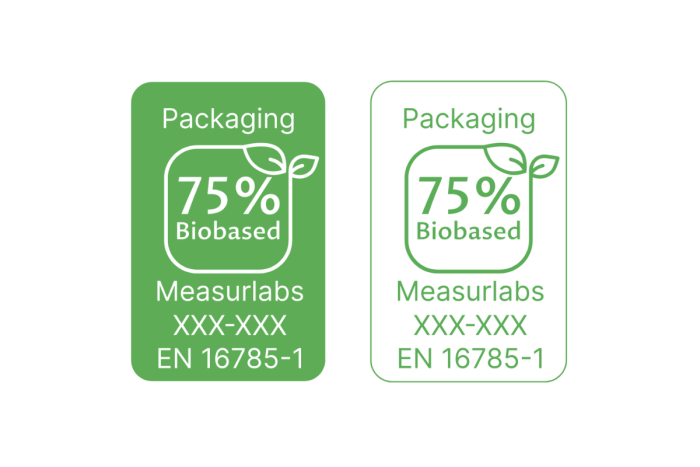Biobased content measurement and certification

- Fast turnaround times
- Personal service from method experts
- Competitive prices
- Result accuracy guarantee
How is biobased content measured?
The Measurlabs Biobased Content Certificate is based on the EN 16785-1 standard, which outlines the methodology for measuring biobased content using radiocarbon and elemental analysis. The results will yield the exact proportion of biobased raw materials in accordance with the upcoming EU Green Claims Directive.
The procedure for determining biobased content is the following:
The composition of the product is determined using CHNOS elemental analysis.
Biobased carbon content is determined using radiocarbon analysis as outlined in the EN 16640 standard.
Other elements (not covered by CHNOS analysis) are quantified using an XRF-based method.
The biobased content of the product as a whole is calculated based on the test results and information provided by the applicant.
The results are validated according to procedures outlined in EN 16785-1:2015.
After the results have been validated, the product will be issued a certificate stating the precise percentage of biobased content. The certificate holder must inform Measurlabs about any changes to the product's composition. New tests are required when changes to composition are likely to affect biobased content.
As an alternative to the full certification procedure, we also offer biobased carbon content testing by ASTM D6866.
Want to know more?
Don't hesitate to contact Ville Roininen, our expert on biobased content measurement and certification.
Product categories
Biobased content certification is applicable to all carbon-containing products and materials, including raw materials, intermediates, finished products, and product families. Products are divided into the following categories:
Group I products: raw materials and chemicals that have been obtained using chemical synthesis and that are typically mixed with other materials to manufacture products. Examples include pure polyethylene terephthalate (PET) polymer and ethyl acetate.
Group II products: products obtained without means of chemical synthesis by mixing group I products. Most products fall into this category, examples being PET plastic with softeners and additives and laundry detergent with different bio-based surfactants, salts, and fossil-based chemicals.
Natural products: constituents that are fully derived from natural sources with no chemical modifications or additives, such as unmodified sawdust.
The testing procedure depends on the product type. One set of elemental analysis and biobased carbon content measurements is sufficient for group I products. For group II products, elemental and biobased carbon analyses have to be performed separately for each biobased constituent. In addition, a biobased carbon analysis is performed on the product as a whole.

EU policy on biobased content measurement
Replacing fossil fuels with renewable resources is a central goal of EU sustainability efforts. As stated in the European Commission’s Sustainable Carbon Cycles communication, 20% of carbon used in chemicals and plastic products within the union should originate from non-fossil sources by 2030. Reflecting the preference for biogenic carbon, emissions originating from fossil sources and biomass are treated differently under the EU Emissions Trading System. This makes it important to determine the biomass fraction of CO2 emissions for processes where mixed fuels are used.
Another key principle of EU sustainability policy is the objective, specific, and scientific substantiation of any green claims. With regard to biobased content, this means that the precise proportion of the product's composition originating from renewable resources needs to be indicated and evidenced by internationally recognized testing standards, such as EN 16785-1.
Request a quote
Fill in the form, and we'll reply in one business day.
Have questions or need help? Email us at info@measurlabs.com or call our sales team.
